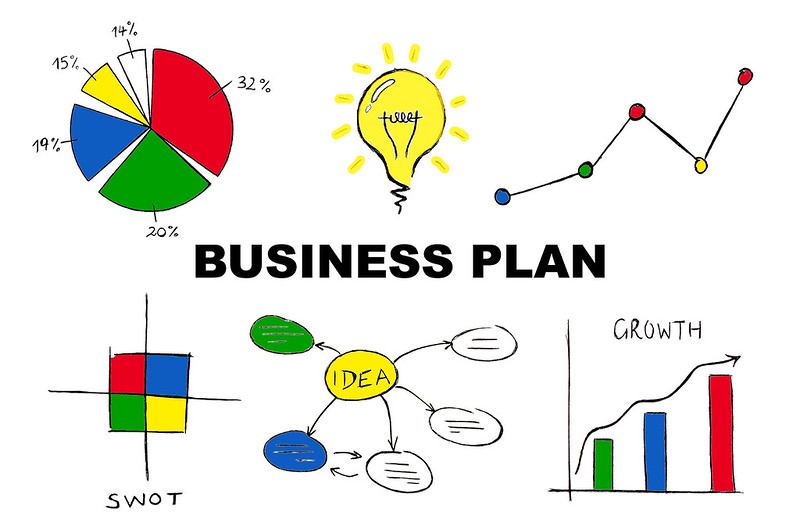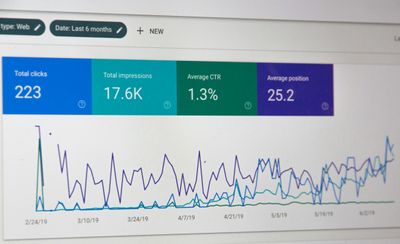If you're like most small business owners, the idea of writing a business plan is about as appealing as a root canal. It's a lot of work, it can feel overwhelming, and after all that time and effort, there's no guarantee that your plan will help you succeed. But it doesn't have to be this way! Writing a good business plan doesn't have to be painful or intimidating—in fact, if you follow these simple steps before starting your own venture or expanding an existing one, we promise that it will help you achieve success:
What is a business plan and why do you need one?
A business plan is a written document that outlines your goals and objectives, the strategies you will use to accomplish these goals, and the financial outcomes you hope to achieve. A good business plan helps you:
- Develop your overall vision for the future of your company
- Set specific targets and deadlines for each goal you achieve
- Plan for any obstacles that could get in your way (so they don't get in yours)
Business plans can also help you secure funding from investors or lenders by showing them how serious about becoming successful business owner, as well as giving them detailed information about how much money is required to make this dream come true.
Business plans aren't just for startups.
Another common misconception is that business plans are only useful for start-ups. All small businesses should have a business plan – not only because it can help you make better decisions and grow your business, but also because it will impress investors (and potential employees).
You’ve probably already heard about how important it is to have an elevator pitch for your start-up if you want investors. Well, the same goes for expanding your business: if you want funding for expansion or another branch location somewhere else in the country, having a well-thought-out plan will go a long way towards convincing them!
Read our blog ‘How to start a business in Australia’ to find out more about developing your own business.
Make your business plan specific.
You need to define your business in terms of its products and services. You need to know exactly what you are selling, even if it's just a service. You also must have a clear idea of who your customers are, so that you can tailor your marketing efforts toward them.
What market will you enter? Is there a niche that has not been explored yet? Are there any nearby competitors already serving this market segment (or at least one similar)? What do they offer, and how is their product or service different from yours?
This is an important part of any business plan because it forces you think about the things that could go wrong with your venture before investing too much time and money into it. And if there are no direct competitors in the immediate area, then perhaps now's the time for someone like yourself to step up!
Choose a name and plan your business structure
Now you’ve got a business idea, it’s time to choose the name and structure that fits your needs.
- Choose a name that reflects your brand
- Choose a business structure that fits your needs
- Choose a business structure that fits the industry you are in
- Know the difference between various types of business structures
Read our blog to find out more about choosing and registering a business name:
Know who your target audience is
One of the most important steps in writing a business plan is to identify your target audience. This will help you focus your efforts, since it's easier to make decisions about how to sell your product or service when you know who will buy it.
To figure out who your customers are, you need to do market research:
- Find out who currently buys similar offerings from other companies (or even from competitors). What makes them buy them? Why does their purchasing decision process differ from yours? If there are any obstacles that keep them from buying what you want them to buy, how could these be overcome by introducing an innovative new feature or offering better quality than what's already on offer?
- Find out what kinds of people don't currently use products like yours but could potentially benefit from them - How would those people react if presented with a new opportunity for self-improvement (and why)?
Research the market as well as your competitors
The market is a very important aspect of your plan. You need to know what your customers want, how the marketplace is trending and where you fit into it.
You should also research your competitors and see what they are doing well and where they are missing out. This will help you determine how to differentiate yourself from the competition to get ahead.
Your financial plan doesn't have to be complicated.
It is possible to create a very simple financial plan yourself, using either a spreadsheet (or even Google Sheets) or a template. If you are not familiar with Excel, you can hire an accountant to help you create the document and show them where all your important information is. You should use any tool that works for you—including business plan software like PlanSwift. The more detailed your financial plan is, the better off you'll be when it comes time for investors and lenders to review it. It's also true that in some cases having an accountant check over your math might be helpful—especially if they have experience working with businesses like yours before!
Have a marketing strategy
This is a good time to think about your marketing strategy. If you are not sure what this should include, here are some things to keep in mind:
- Marketing is about communicating your value proposition to your target audience. Your business may have a specific niche or segment of the market that it appeals most to (e.g., children's toys and games). It may be as simple as "we sell all natural/organic products" or "we offer custom-made furniture." Whatever it is, make sure you know who will be interested and why they would want what you have for sale. Communicating this message clearly can help attract the right kind of customers who will benefit from using your product or service and tell others about their experience using it too!
- Marketing does not just mean advertising; it also means building relationships with potential customers before they buy something from your company! This could involve attending community events where people might want what you're selling; providing samples at trade shows or conferences; hosting workshops where people learn how to use new products—the possibilities are endless! Having an active presence within local communities helps build trust between businesses like yours and consumers who shop there regularly so when they see something interesting on social media platforms such as Twitter or Facebook, they're more likely than ever before making impulse purchases without thinking twice about their decision first.
A good business plan should be an evolving document you'll use to start and grow your business.
If you’re not sure where to start or need more information, there are plenty of resources out there. From online business plan templates to books and websites that can help you create a plan for your company, we hope this article has given you some ideas on how best to use them.
A good business plan should be an evolving document you'll use to start and grow your business. It's not just a one-time thing; rather, it's something you can use to get funding or even as a reference point when looking for potential partners. As your business changes over time, so will your plan—and that's okay.
Contact us at Registry Australia if you need help developing a new business plan for 2023 or beyond.





